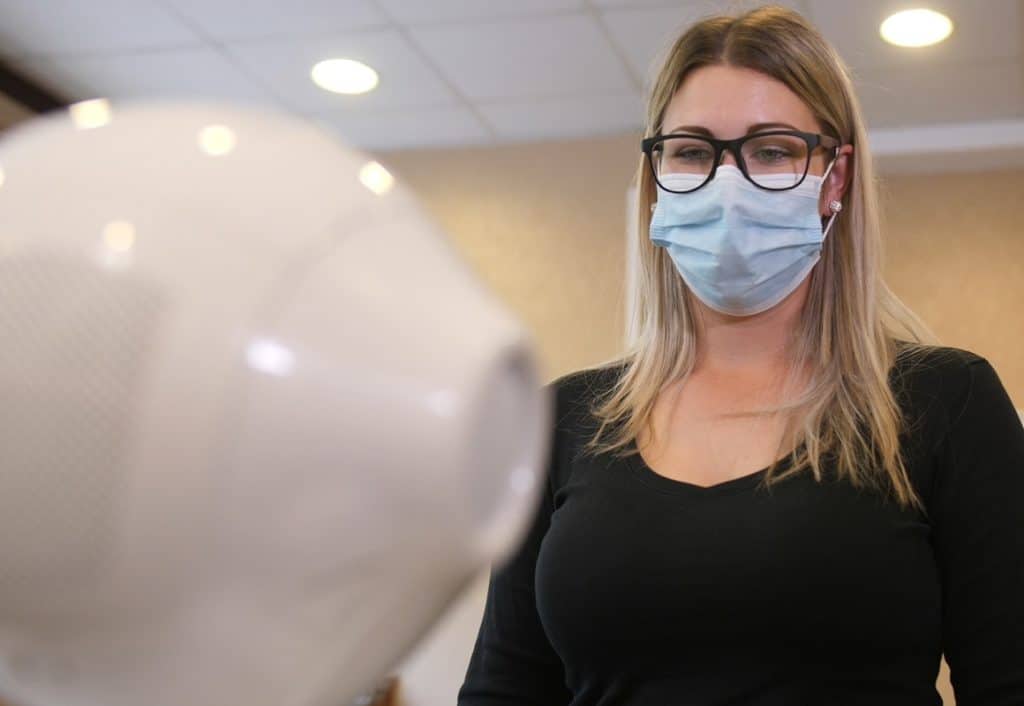5 Surprising Facts About Humanoid Robots
Softbank Robotics’ webinar about humanoid robots deployed in healthcare brought some interesting astonishments. Did you know for example that Pepper robot can help patients with dementia? It is used in several hospitals and also in nursing homes across Europe. Read this blog post and explore other enthralling facts about humanoid robots!

COVID-19 and other challenges
Healthcare services are under very big pressure due to the current pandemic situation. Not just because of the increasing number of patients, but also they have to protect their own employees and other patients from infections. And there are additional problems like the ageing population and shortage of nursing staff as well. Humanoid robots like Pepper can be good solutions to all these problems.
Softbank Robotics’ webinar about humanoid robots
The last week, Softbank organised a webinar and show the participants a motivating use case from Cologne, Germany. In St.Marien-Hospital, Pepper robot is deployed as a cute robotic helper for geriatric patients. The main question of the webinar was that how can humanoid robots like Pepper enhance the level of healthcare services for geriatric patients. There were 5 surprising facts for me in connection with Pepper. Now, I would like to share these 5 motivating details with you!
1. Pepper has nearly 40 successful integrations in Germany!
These are hospitals, nursing homes, and other organisations helping senior citizens. For example, not just St.Marien-Hospital, but also Caritas uses Pepper. They have numerous programmes for the elderlies. Pepper can entertain them, playing quizzes, do some fitness activities as well.
2. Humanoid robots like Pepper can be a real help for patients with dementia
Prof. dr. Ralf-Joachim Schulz, head of the centre for geriatric medicine in St.Marien spoke about the integration of Pepper in this hospital. This hospital has one of the biggest geriatric centres in Germany, and they were searching for new therapy ways when he first met Pepper in a newspaper article. After that, they started a project with Entrance Robotics. Pepper can detect emotion, and this is a crucial ability when curing patients with dementia. They can’t describe their feelings in the right way, but the robot can detect it and then can interact with them accordingly. You can find more information about robotic technology for dementia care here.
3. Patients could keep contact with relatives via Pepper
Pepper was also tested in the oldest and biggest hospital in Paris. The robot task was to help patients as a telepresence solution. They could make contact with their relatives only through the robot because they were not allowed to visit. They can start a video conference using the robot’s tablet on its chest.
4. Pepper can detect if people are wearing masks
Mask wearing is a very hot topic in Europe. Studies proved that it is a very effective way to prevent being infected. In most countries, you have to wear a mask in closed areas. That’s why Softbank developed this new artificial intelligence algorithm for Pepper. Using its cameras, the robot can check up to 5 people in a group if they are wearing a mask. Partners and developers can increase the robot’s mask detection skills. It can even ask them to wear a mask and it can alert businesses too.
5. Physical activities on humanoid robots optimized for the elderly
If you want to stay healthy, you should live an active, sporty lifestyle. That’s also true for the seniors. Entrance Robotics created a new feature for Pepper, called fitness activation. The robot can demonstrate activities for the patients, and also it can motivate them to participate.
Conclusion
This webinar organised by Softbank Robotics was really insightful and motivating. Pepper robot can be deployed successfully in healthcare and helps elderly patients properly. It is proved that it can help patients with dementia. Besides this, using humanoid robots is a safe solution even in this current pandemic situation. Clinics can protect their employees and patients from being infected. Healthcare sector can also find the answers for problems like an ageing population, shortage of medical staff and financial viability.
Do you want to know more?
